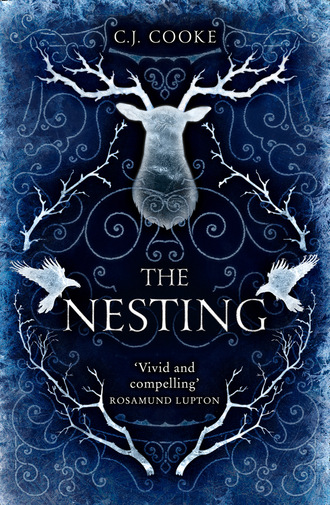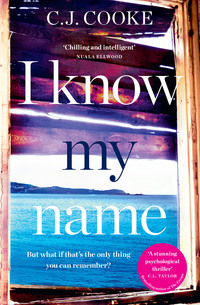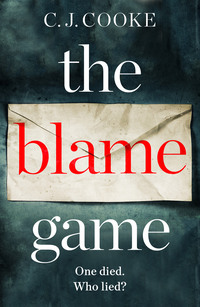‘Tom! Why did you do that?’
She sits up with a gasp, her heart racing, and looks down into the emptiness of her arms. Where is the baby?
A low cry tells her Coco is in her crib, and slowly she realizes that she was dreaming. Thank God it was just a dream. Tom didn’t hit her. She dreamed it, and it’s over now.
With shaking hands, she reaches down the side of the bed and pulls out the red, leather-bound diary with ‘AF’ inscribed in gold lettering. The diary that Tom bought her, and in which she records her dreams, as per the midwife’s instructions. We want to keep an eye on you, the midwife said. We need to make sure you’re well inside and out.
She writes the date and the dream.
Tom smacked me across the face when I wouldn’t have sex with him????
She stares at the words on the page, and wonders whether she should score them out.
The baby’s cries get louder, insistent. ‘There, there, baby girl,’ she coos softly to Coco, lifting her out of the crib and relishing that moment when, as always, Coco rolls her shoulders and bottom back in a big stretch, before sensing the proximity of a nipple and widening her mouth like a bird, searching for it. A spear of pain chases right up through the nipple to Aurelia’s shoulder, collarbone, and all the way back down to her knees. She groans at the sharp scorch of it as the baby latches on and suckles.
Her heart continues to race and her mind reels with images from the dream. The look on his face when she rejected him. The crack of his hand against her cheek.
Later, she’ll tell him about the dream in wounded tones and he’ll hold her close, kiss the exact spot on her cheek where the pseudo-memory still stings. ‘Did you eat some cheese before going to bed?’ he’ll laugh.
Coco releases the nipple and sinks back to sleep in Aurelia’s arms, satisfied. Aurelia’s breast feels smaller, emptied, and she fastens her bra before lifting Coco to her chest and rubbing her back. Unlike Gaia, Coco tends to wind really well, bringing up a healthy belch within a few seconds that tells Aurelia she’s ready to be settled back into the crib.
But Aurelia cannot sleep. She rises, her head swampy and her body aching, to check on Gaia in her room next door. She sees a foot hanging out of the side of the duvet, a mass of blonde curls, and decides to let her sleep on.
Aurelia pads along the wooden floor of the old house, but it has all the foreign dimensions of a hotel and she makes a dreadful creak that she is certain will wake both children. Mercifully, neither stirs. She heads downstairs to the large kitchen swimming in morning sunlight.
The house may yet feel strange, but that is to be expected – she’s only been here eight days, and with a brand new baby, and this is not to be their home, in any case. This six-bedroom traditional red-painted wooden lodge named ‘Granhus’, Norwegian for ‘Spruce House’ and constructed in the nineteenth century, will be properly restored after their high-concept summer home is built close by. That will be their summer home, and Granhus will become Tom’s Norwegian office for his architecture firm. Or a holiday rental. Or both. It’s big enough for both. Either way, he promised that it wouldn’t be their base. She found it creepy when they bought it, and she finds it creepy now.
From the window by the sink she can see fields whitened with fresh snow all the way to the horizon, where serrated, snow-dusted mountains soar into the clouds. It’s almost Christmas. From the window by the table, the garden sweeps down to a cliff, an ancient forest of towering pine trees gathered on the site of the new building. Beyond that, she can just make out a belt of deep blue – the fjord.
‘We’ll get a boat,’ Tom had said when they came to view this plot of land. ‘We’ll take day trips up the fjord. Maybe sail all the way to Ålesund, have high tea, then turn around and head back home for supper.’
Ålesund is where her father spent his childhood and where her grandparents lived. They’re buried there now, along with aunts and uncles and cousins she never met. It’s a charming port town on Norway’s west coast, and she has fond memories as a child walking around the colourful art nouveau quarter.
‘Come and see what I’ve found in the shed.’
The sound of Tom’s voice makes her drop the mug she was holding and it shatters across the floor in a dozen pieces. He rushes forward to gather up the pieces with a dustpan before she steps on them in her bare feet.
‘Are you all right?’ he says, laughing. ‘Didn’t mean to scare you.’
She recovers, smiles, though her heart is racing. She can still feel the burn of her cheek from where dream-Tom slapped her. The crack in her heart.
‘I found this massive thing in the shed,’ he says, before she can mention the dream. He tips shards of mug into the bin. ‘Do you want to come and see?’
She raises her eyes to the ceiling. ‘What about the girls?’
‘It’ll only take a minute,’ he says.
She slips on her padded coat and a pair of Tom’s wellies and traipses after him out the back door towards the old woodshed at the rear of the house. It’s barely eight in the morning and the forest is carpeted in snow, but it’s unseasonably mild, sunlight picking its way through the towering pine trees all around the house.
‘Be very careful,’ Tom says as he approaches the door to the shed. He holds out a hand and she wonders for a moment if a wolf or lynx has got trapped inside. No. He’d have locked her in the house with the girls if that were the case, and taken down a shotgun. She watches, nervous and excited, as he digs his mobile phone out of his back pocket, switches on the torch and shines it inside the shed.
She follows after and watches the light as he shines it towards the ceiling.
‘There,’ he whispers, grinning. ‘Isn’t that incredible?’
At first she thinks she’s looking at a ceiling lamp, a kind of Frank Gehry-esque ceiling lamp, cone-ish in shape, about the size of a medicine ball and patterned with art deco swirls in peach and mauve. With horror, she realizes what it is, and takes a step back in case its inhabitants wake and come seething out in a frenzy.
‘Hornets!’ she hisses at Tom, grabbing on to his arm.
‘Wasps, most likely,’ he whispers back, not taking his eyes off the cone.
‘I’ll call pest control,’ she says, inching backwards, not daring to tear her eyes away from it.
‘Shame,’ Tom says.
She looks at him as if he’s gone mad, so he explains. ‘Well, it’s beautiful, isn’t it? A perfect papier-mâché cone made by thousands of tiny creatures.’ To her horror, he reaches up to trace it dreamily with his fingertips. ‘It’s a work of natural art, the texture of papyrus. Like finding something from an ancient world.’
‘You won’t be saying that if they sting you,’ she says.
Back in the house, she hangs up the phone, relieved that pest control will come imminently to destroy the nest. Tom is still banging on about how they’ve intruded on the wasps’ territory, Anthropocene this, biodiversity that. She’d forgotten how much of Norway feels off-limits to humans. ‘Haven’t the wasps merely done what we’re attempting to do?’ Tom says, lightly but fully serious. ‘They just created a home for their babies.’
Vile that the nest should take the shape of a womb, she thinks. With a shudder she imagines a baby inside, its head lowered into the cone.
She turns back to the window to drink in the view of the fjord, or rather the bits of blue she can make out through the woodland. She can’t imagine why the previous owners of this place didn’t cut down the trees that obscure such an amazing vista. If just a handful of trees were removed she’d be able to see all the green pleats of the valley crimping on forever and that navy ribbon of fjord stretching to the city.
She tells this to Tom, who frowns. ‘They’re pretty ancient, those trees,’ he says.
‘All trees are ancient, Tom. And it’s not like there’s a shortage of trees around here. You could use the wood for the new house, surely.’
‘You mean “Basecamp”.’ He announces the house’s name with finger quotation marks.
She laughs. ‘Basecamp.’ She’d have preferred something along the lines of ‘Villa Faraday’ or ‘The Tree House’, but whatever. Tom says ‘Basecamp’ captures the sense of family adventure they’re embarking on, so Basecamp it is.
‘Basecamp,’ she deadpans, and Tom grins.
‘I’ll cut down those trees tomorrow. Happy?’
‘Ecstatic.’
It is night time. Coco is lying against Aurelia’s left shoulder and Gaia is curled up beside her in the armchair as she reads from her father’s old journal of Norse folklore, as told to him as a child by his parents and grandparents. The yellowing, crumpling transcriptions splattered with ink blots are much too delicate now for handling, and they’re in Norwegian. Some years ago, she began the painstaking process of translating and digitizing the book into an English PDF file that she reads on her iPad to Gaia. Many are simply too macabre for a six-year-old, but there is a selection of tales that are entertaining and that provide a good source of education about Gaia’s heritage. Gaia loves the tale about the raven who raises two sparrows in her nest when her own eggs are stolen. She particularly loves the one about the man who changes into a wolf when his sadness gets the better of him, and always squeals at the tale of the bear who tries to catch a fish that turns out to be a whale that swallows the bear whole – a metaphor, Aurelia thinks, for biting off more than you can chew.
‘Can you read the one about the lady who was friends with the big deer?’
‘Yes of course,’ Aurelia says, swiping to the beginning of the PDF.
‘Here it is,’ she says. ‘Grete and the Elk.’
Once upon a time there was a woman called Grete who had two daughters. All day long Grete did the work of women, but at night she would stand by the door and dream about sailing across the ocean, or diving to its depths, or even soaring to the moon.
One night, whilst she was standing by her door eating a bowl of riskrem (‘riskrem’ is a kind of porridge,’ she tells Gaia), she heard a noise in the woods, the sound of shaking branches and twigs snapping underfoot. Her dog began to growl, and fear seized her so that she shut the door with trembling hands. But when she peered through the window she saw an enormous elk sniffing at the latch. The next night the same thing happened, and the night after, but on the fourth night she decided to hold her nerve and see what the elk wanted.
The elk was a magnificent creature with a majestic crown of antlers that glinted in the moonlight. Grete was afraid of being run through by them, but as the elk stopped a little way away from her she sensed that it did not mean her harm. Her dog rushed towards the elk, barking and warning it off, but the elk merely looked down at it, and eventually the dog quietened and seemed to accept the elk.
‘What do you want?’ Grete asked the elk. It took one step closer, then another, and she noticed its eyes peering at the remains of the riskrem she had just been eating a moment before. Gently she held up the bowl and the elk ate from it.
The next night Grete made two bowls of riskrem and the elk visited and ate. This visit became a regular habit, and Grete found that she spent her days doing the work of women anticipating its visits with happiness. The elk listened to her more than her husband or children, and she’d noticed it would often seem to respond with little grunts or huffs that sounded as though it understood every word she spoke.
But then Grete became ill. Her oldest girl fetched the doctor who told her nothing more could be done – she would have to stay in bed where she would eventually die.
Grete asked for her daughters to put a bowl of riskrem by the front door each night. At first, they asked why, but after the first night they understood. After three nights, Grete was wakened by the tap-tap-tap of hooves across the floorboards. She was astonished and joyful to see her elk walking through her home, where it came to rest at her bedside. She reached out to stroke his velvety muzzle and told him many tales, to which he nodded and grunted in response.
It is said that, even when Grete passed away, her elk would often visit the house, and her children would wake oftentimes to find muddy hoof prints along the floorboards, for the elk had come to watch over them.
Aurelia has read this story to Gaia many times, always taking care to lighten her tone at the parts concerning death, but still she has questions: ‘What’s “the work of women”, Mumma? Was the elk her best friend? Wouldn’t his antlers have damaged the walls when he came into the house? What does “die” mean?’
‘Will you die, Mumma?’ Gaia asks, falling serious.
‘Not for a very, very, very long time.’
The wrinkle in Gaia’s brow softens. When Aurelia tucks her into her bed the questions about death continue, and she makes a mental note not to read that story again.
But in just ten and a half weeks’ time, she will be dead.
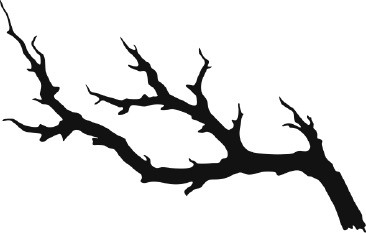
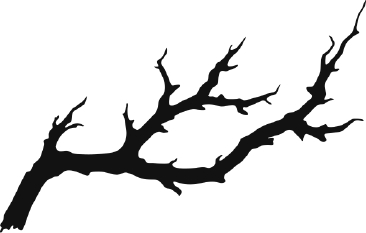
A HOME OR A NEST
Now
‘I’m Sophie,’ I said to the woman holding the sign. ‘Sophie Hallerton.’
The name rolled off my tongue as though it was always meant to be. It sounded sophisticated, and I could well imagine my mother’s face screwing up upon hearing someone refer to me as Sophie Hallerton.
The woman grinned and stretched out a hand. ‘Derry Boydon,’ she said in a London accent. Strange – I’d expected her to be Norwegian. She was short with sleek black hair and large blue eyes that put me in mind of a cat. ‘This is my husband, Clive,’ she said, turning to the man standing next to her.
‘How do you do?’ he said, holding out a hand. ‘I’m Tom’s business partner. Tom’s a bit tied up today and I’ve to drop Derry off in the city anyway, so here we are.’
Clive insisted on fetching my bag from the carousel and taking my handbag off my shoulder while Derry pinned me with her huge blue eyes and some very intense small talk.
‘Is this your first time in Norway?’
I nodded.
‘It’s a wonderful place,’ she said. ‘You’re going to have so much fun.’
‘I hope so.’
‘What are you talking about?’ Clive interjected. ‘She’s here to nanny, not sightsee.’
‘Ignore him,’ Derry said as he hoisted my suitcase into the boot of their car, a flashy Mercedes SUV with heated leather seats that smelled overwhelmingly of pine. ‘When I’m back I’ll take you sightseeing. I’m sure Gaia and Coco will relish the chance to get out of the house.’
I strained to take in my surroundings from the back seat. It looked like England, with the addition of snow-capped mountains and a smooth, navy-blue lake in the distance. Everything was very blue and very spiky. So in other words, nothing like England.
‘Not a lake,’ Clive said when I pointed at it. ‘That’s a fjord. Grytafjorden, if I’m not mistaken.’
‘Oh,’ I said. ‘What’s the difference between a fjord and a lake?’
He gave me a look in the rear-view mirror as if I’d just asked where babies come from. ‘The fjords were made by glaciers over a number of ice ages and then filled with sea water. They always connect with the sea.’
Derry told me more about the region, and about Norway more broadly: how it was world-leading in its environmental ethics, that it was the first country to introduce paid paternity leave, and that it once knighted a penguin.
‘It sounds like an amazing place,’ I observed.
‘Bloody expensive,’ Clive countered. ‘Especially if you decide to build a house out here. My advice on that is – don’t.’
‘Noted,’ I said, and he laughed.
I guessed that Clive was in his mid-to-late forties, a little older than Derry. He wore a gold signet ring on his pinky, and a navy suit. Orange hair greying at the sides, pale skin, expressive blue eyes, thickly set. He had that same air about him that Tom and most of the people in first class on the plane had – confidence. I wondered how he got that confidence, and how I could get it. Maybe it was just the posh accent. I opened my mouth to ask where he was from, but before I could he said: ‘So you’re a nanny? Been doing that a long time, have you?’
I nodded, stiffly. ‘For … a while, yes.’
‘My niece is nannying over in Spain at the moment. Or “au pairing” –’ he said, making exaggerated air quotation marks with his fingers. ‘– which means she gets paid nothing to run around after three kids under the age of five all day. A so-called “cultural experience”.’ More air quotations. He threw me a isn’t-that-ridiculous smile. I tried to match it and failed epically.
‘Still, you’ve got a great guy as an employer,’ he said. ‘Tom’s great. Really, he is. And you’ll have met the girls? Little Gaia and Coco.’
‘Yes. They’re really special …’
He nodded. ‘Yes. It’s such a shame …’ he said, throwing a strange look at Derry.
‘Such a shame,’ she agreed.
I presumed they were talking about the death of the girls’ mother, Aurelia, but just then we pulled up at a sign that seemed to indicate that one of the lanes across the bridge was closed and the traffic was slowing to a halt, so I wasn’t quite sure whether he was referring to the dead mother or the traffic. We sat in silence for a few moments, indicating to merge, until someone let us in and we pulled off.
‘So … you’re Tom’s business partner?’ I asked Clive, wondering why that meant he should be in Norway, or picking me up from the airport.
‘We run the company together,’ he said. ‘Architecture. I’m not sure how much he’s told you about the build …’
‘… not a lot, actually. It’s a summer house, isn’t it?’
‘Indeed. He and Aurelia acquired the site last year. There’s an old lodge on the land, just behind the woods. That’s where everyone is staying at the moment. By everyone, I mean you, Tom, the children, Maren, the housekeeper – I gather you’ve met her already?’
I nodded. The blonde woman who interviewed me at Tom’s house in Hampstead.
‘Occasionally Derry and I pop over and stay for a weekend to project manage, or kick the contractors up the backside, in layman’s terms.’
This news made me feel uneasy. I don’t exactly know what I was expecting, but certainly not a household filled with watchful, confident adults.
‘The build’s important,’ Clive continued in a sombre voice, ‘because regardless of what Tom tells you or anyone else, this house is not just his family holiday home – it’s also a kind of showstopper of a piece for the company. It’s our calling card, if you like. The centerpiece of our portfolio. And this one’s ten times better than the first house.’
‘First house?’ I asked.
‘Oh, blimey,’ Derry said, in a voice that sounded like there was a whole backstory I wasn’t aware of.
‘Yes, well …’ Clive said, clearing his throat. ‘There was a house before this one, but …’
‘They built it on a river,’ Derry said, as though building on a river was a big nope. ‘Basecamp, it was called.’
‘I’m sure Tom will be very glad to fill you in on Basecamp,’ Clive added loudly, keen to move on. ‘Aurelia’s Nest is going to be the ticket.’
‘Aurelia’s Nest?’ I asked.
‘The name of the new house,’ Derry explained.
‘Prior to this we’ve focused mostly on commercial design,’ Clive said, ‘but once we’ve built Aurelia’s Nest we’ll attract more clients engaging with high-end residential design. And right now, that’s where the money is.’
I nodded as if I followed any of this. ‘And … how long do you think it’ll take? The … build, I mean?’
Clive came over very sullen then and I worried I’d hit a nerve. ‘Unfortunately a project as ambitious in scope as this one requires a lot of red tape. That’s before the construction, which is fairly precarious. Basecamp was built over a river, which on hindsight was a very bad idea and we’ve all since learned from our mistakes. Now, Tom is taking zero chances. Aurelia’s Nest is being built on the side of a cliff.’
‘Beg pardon?’ I said in a mousey voice. ‘Did you say …?’
‘Right?’ Derry said, turning all the way around. ‘A house on the side of a two-hundred-foot sheer drop!’
I looked from Derry to Clive with abject terror.
‘Trying to find a team of builders who’ll do their job while hanging off a sheer drop has proved … challenging, shall we say?’ Clive said. ‘Impossible, that’s another word. This is why Tom and I work well together, you see. He’s the risk-taking artist and I’m …’
‘The sane one?’ I offered.
Clive liked that. He threw me a smile in the mirror. ‘Something like that.’
‘Still, it’ll look terrific when it’s finished,’ Derry added.
‘Very modest, aren’t you?’ Clive added, and I must have looked confused because Derry explained. ‘Tom has asked me to do all the interiors. I run an interior design company. That’s why it’s going to look fabulous.’
‘You mentioned an old lodge,’ I said. I was suddenly glad that I’d be staying in the lodge. A nice, safe lodge.
‘A lodge, yes?’
‘What’ll happen to the lodge once the new house … the one hanging off the edge of a cliff … is completed?’
‘Ah. Well, Tom wants to restore it,’ Clive said. ‘But between you and me, I think the place is past it. Lots of damp and draught … Derry can’t stand it. Can you, darling?’
Derry shook her head. ‘It needs tearing down, making into a nice pasture. A vegetable patch, or something along those lines.’ She threw me a look of grave concern. ‘You’ll know what I mean when you get there.’
We dropped Derry off at a ferry port where she said she was getting a ferry to Trondheim to work on a new project. She gathered her bags before getting out and flashed me a smile. ‘So sorry I’m heading off just as you’re arriving,’ she said. ‘But I’ll be back in a few weeks. Good luck!’
We pulled off the motorway and took a road that gradually got narrower and less road-like by the mile. The scenery got more and more intense, too, to the point where Clive rolled down the windows and encouraged me to stick my head out instead of pressing my nose against the glass in awe.
It was like Lord of the Rings, Harry Potter, and Game of Thrones all wrapped up and multiplied by a trillion. The road climbed steadily up the side of a shark-fin mountain range, so that we were driving along a stone ridge looking down over a fjord with postcard-blue water. A white dot moving through the middle of it turned out to be a cruise boat, but the water was so still that the boat looked like it was a zip being pulled up a sheet of turquoise velvet. On the other side of the gorge were black zigzags of rock speckled with snow, rich green fields, and gushing waterfalls crowned with rainbows. The clouds were so dramatic that I couldn’t decide where to look – the sky or the fjord – so I spent most of the journey with my neck craned out of the window nodding up and down.
‘Impressive, isn’t it?’ Clive said. ‘That’s Hjørund fjord,’ he said.
‘Hjørund,’ I repeated. I had the sense that Clive enjoyed knowing things and telling them to others. But I didn’t mind. I would remember Hjørund fjord for the rest of my life.
A red house came into view at the end of a long path through a forest of enormous fir trees. It looked like something straight out of a fairy tale, with a pitched black roof, a white-framed gable end and a cute round window set against the pillar-box red, ivy trailing up one side, and a name, GRANHUS, spelled out in wood-carved letters above the front door. A dozen ravens circled the chimneys, their large wings fanned out like black sails. Beyond the house was a dense patch of men in hard hats carrying iron girders through the woods.


